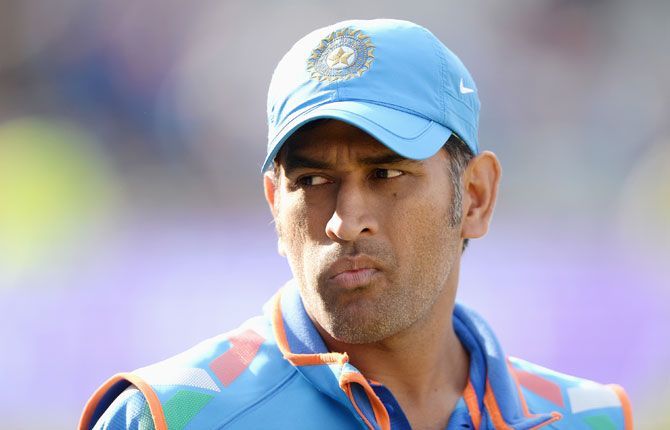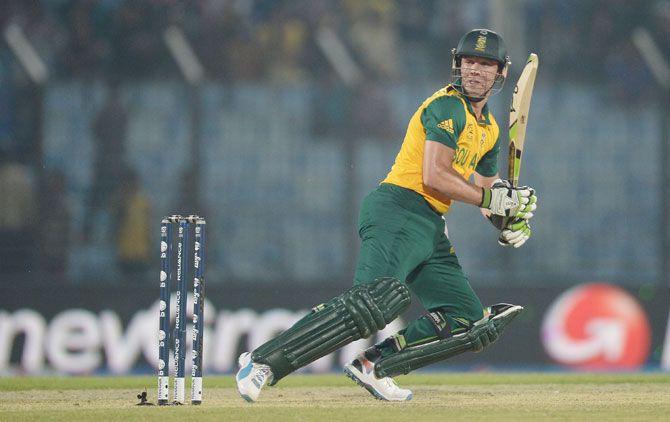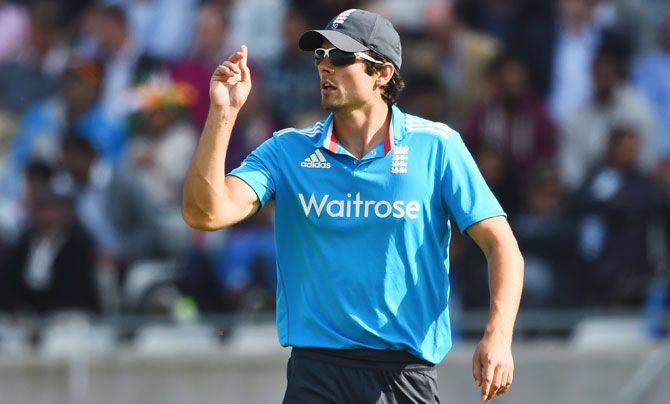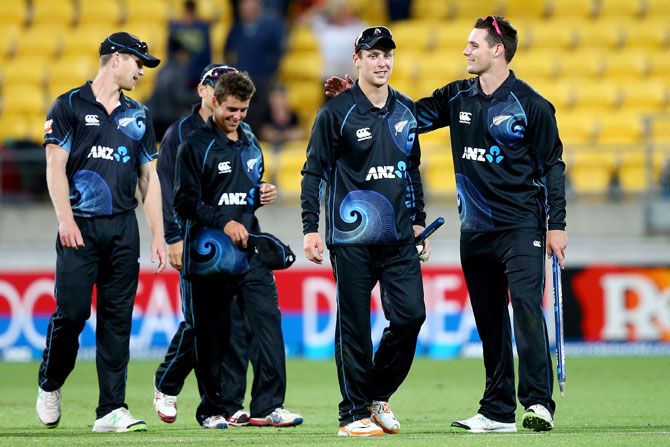
After what at one stage earlier this month looked like a vast game of musical chairs, reigning champions India ended up topping the world rankings when the five-month countdown to the 2015 World Cup started on Sunday.
With just three rating points separating the top four nations, however, the 11th version of the quadrennial showpiece of 50-overs cricket, which is being co-hosted by Australia and New Zealand, looks like being one of the closest ever.
We look at how the 10 Test-playing nations (in order of world ranking) are shaping up 154 days before New Zealand meet Sri Lanka in Christchurch to launch the Feb. 14-March 29 tournament.
INDIA
Led by Mahendra Singh Dhoni and boasting some fearless strokemakers in their ranks, the top-ranked ODI side in the world look serious contenders to defend their title.
A much-improved fielding side, India appear to have benefited from the Indian Premier League, which has given their players the opportunity to play regularly against the leading bowlers in the world.
Even the most junior batsman in the Indian side has faced the likes of Dale Steyn and Mitchell Johnson in the Twenty20 tournament and have gained enough confidence to hit them out of the park when the need arises.
With their pace bowling underwhelming, India will once again build their attack around their spinners, who made a big impact in their World Cup win at home in 2011.
A lot will depend, though, on how the likes of Ravichandran Ashwin and the plethora of part-time spinners fare on the relatively bouncy pitches in Australia and New Zealand.

SOUTH AFRICA
Recent series victories in Sri Lanka and Zimbabwe, where they played a triangular tournament involving Australia, have boosted the confidence of the Proteas, even if both were achieved in conditions they will not find at the World Cup.
Their strong batting line-up has been solidified by the emergence of Faf du Plessis at number three, coming in after proven openers Hashim Amla and Quinton de Kock.
In AB de Villiers they have arguably the best one-day batsman in the world, but there is concern over their one genuine power-hitter, David Miller, who is out of form.
The South Africans also lack an all-rounder to bat at seven, with this duty shared in recent times by Ryan McLaren and Wayne Parnell with mixed success.
Dale Steyn remains the lynchpin of the bowling line-up and rarely has an off-day, and in JP Duminy and Imran Tahir there are also genuine spin options too.
SRI LANKA
Sri Lanka will be hoping next year is third time lucky after being beaten in the final of the last two World Cups and the 1996 champions seem to have the resources to achieve that.
Mahela Jayawardene, 37, and Kumar Sangakkara, 36, got a fitting 20-over farewell when Sri Lanka won the World Twenty20 title in Bangladesh in April but winning the 50-over event in Australia would be an even better parting gift.
Sri Lanka's compact batting side is complemented by a balanced bowling unit which is likely to include the mercurial Lasith Malinga, whose yorkers, delivered with his sling-shot action, can make him almost unplayable on occasions.
The rise of Thisara Perera and Dhammika Prasad have eased the pressure on Malinga but Sri Lanka have been forced to have a fresh look at their spin options after off-spinner Sachithra Senanayake was banned for an illegal action.

AUSTRALIA
Australia relinquished the number one ranking, lost captain Michael Clarke to injury as well as a match against Zimbabwe on their recent trip to Harare but that will do little to dent optimism they can win a fifth world title next March.
With the likes of openers David Warner and Shane Watson to return to the side before the World Cup, Australia can afford to be circumspect about the setbacks suffered by an understrength and experimental side in Zimbabwe.
There remain concerns, not least about whether Clarke's back will be up to the amount of cricket he will be asked to play over the next five months and whether they will ever unearth another world-class spinner.
On the plus side is the prospect of Mitchell Johnson and his fellow pacemen renewing their often lethal relationship with Australia's hard and bouncy decks.
Coach Darren Lehmann has laughed off talk of a split with Clarke over selection and will be satisfied that the likes of all-rounder Mitch Marsh have given him more depth in his squad should he need it next year.
ENGLAND
England go into the World Cup, which they have never won, with minimal expectations after a dismal run of form in the 50-over game.
The lowest average net run rate of all test-playing nations in recent times, an outdated approach to the format and huge question marks over the captaincy and make-up of the team hardly inspire confidence.
Former spinner Graeme Swann said recently the team have "no chance" of winning the tournament and there is a strong case for replacing Alastair Cook as skipper due to doubts about his leadership style and limitations with the bat.
England do have talented one-day players. Alex Hales is a destructive opening batsman, Eoin Morgan a specialist finisher, wicketkeeper Jos Buttler a flamboyant middle-order player and Harry Gurney a potentially imposing death bowler.
With test batsmen Joe Root and Ian Bell also skilled in the one-day game, there is a solid core to the team but the approach needs to change because 240 metronomic runs do not win 50-over matches at international level in the modern game.
PAKISTAN
A bunch of talented but unpredictable players with a tendency to implode inexplicably, Pakistan suffered a huge blow to their preparations when spinner Saeed Ajmal was banned for an illegal bowling action earlier this month.
Ajmal has about five months to correct the action and seek a reassessment but whether he will ever again show the form that has made him the top-ranked ODI bowler in the world is something only time will tell.
The 1992 champions are also grappling with a captaincy dilemma. Misbah-ul-Haq has remained a rare stable figure in a volatile dressing room but his modest sub-74 strike rate is no longer tailor-made for the format.
After last month's ODI series defeat in Sri Lanka, the clamour has grown to replace him with all-rounder Shahid Afridi, whose batting and personality are the polar opposite to Misbah's.

NEW ZEALAND
New Zealand's batting has been settled for a number of years with Martin Guptill, Kane Williamson, Ross Taylor and captain Brendon McCullum likely to fill four of the top-five positions.
The biggest issue is finding a new opening partner for Guptill with few expecting hard-hitting batsman Jesse Ryder to be recalled to the side due to his behavioural issues.
Tim Southee, Kyle Mills, Trent Boult and Mitchell McClenaghan are likely to be the main pace bowlers with young quicks Adam Milne and Matt Henry vying for the fifth spot.
Former captain Daniel Vettori, who is still one of the most economical bowlers in limited overs cricket and a handy lower-order batsman, is also likely to be included, if fit.
WEST INDIES
West Indies are without a coach after the sudden departure of Ottis Gibson last month and caretaker Richie Richardson could still be in place when they warm up for the World Cup with trips to India and South Africa.
A series of top-order collapses in recent limited overs matches mean the fitness and availability of the often brilliant opener Chris Gayle would appear to be vital to the hopes of the twice champions enjoying any success at the World Cup.
Likewise, persuading mystery off-spinner Sunil Narine to put West Indies before lucrative Twenty20 contracts would further bolster an otherwise solid bowling unit.
BANGLADESH
The 50-over format remains Bangladesh's best chance to impress at the world stage but their growth as a force in world cricket has stagnated in recent years.
The team rely heavily on spinners, who might find it difficult to ply their trade effectively on the seamer-friendly conditions in Australia and New Zealand.
Bangladesh also have had their problems with all-rounder Shakib Al Hasan over disciplinary issues but the former captain remains their best bet to surprise a higher-ranked opposition and cause an upset during the World Cup.
ZIMBABWE
Zimbabwe showed they can be competitive in the recent home triangular series against South Africa and Australia where they defeated the latter and came close to upsetting the Proteas.
The batting line-up could be described as flakey at best but they do have decent hitters and in Brendan Taylor, who relinquished the one-day captaincy to Elton Chigumbura last month, a player to build an innings around.
Consistency in performance with both bat and ball has been elusive and that is not something likely to change between now and the World Cup.




.jpg)






